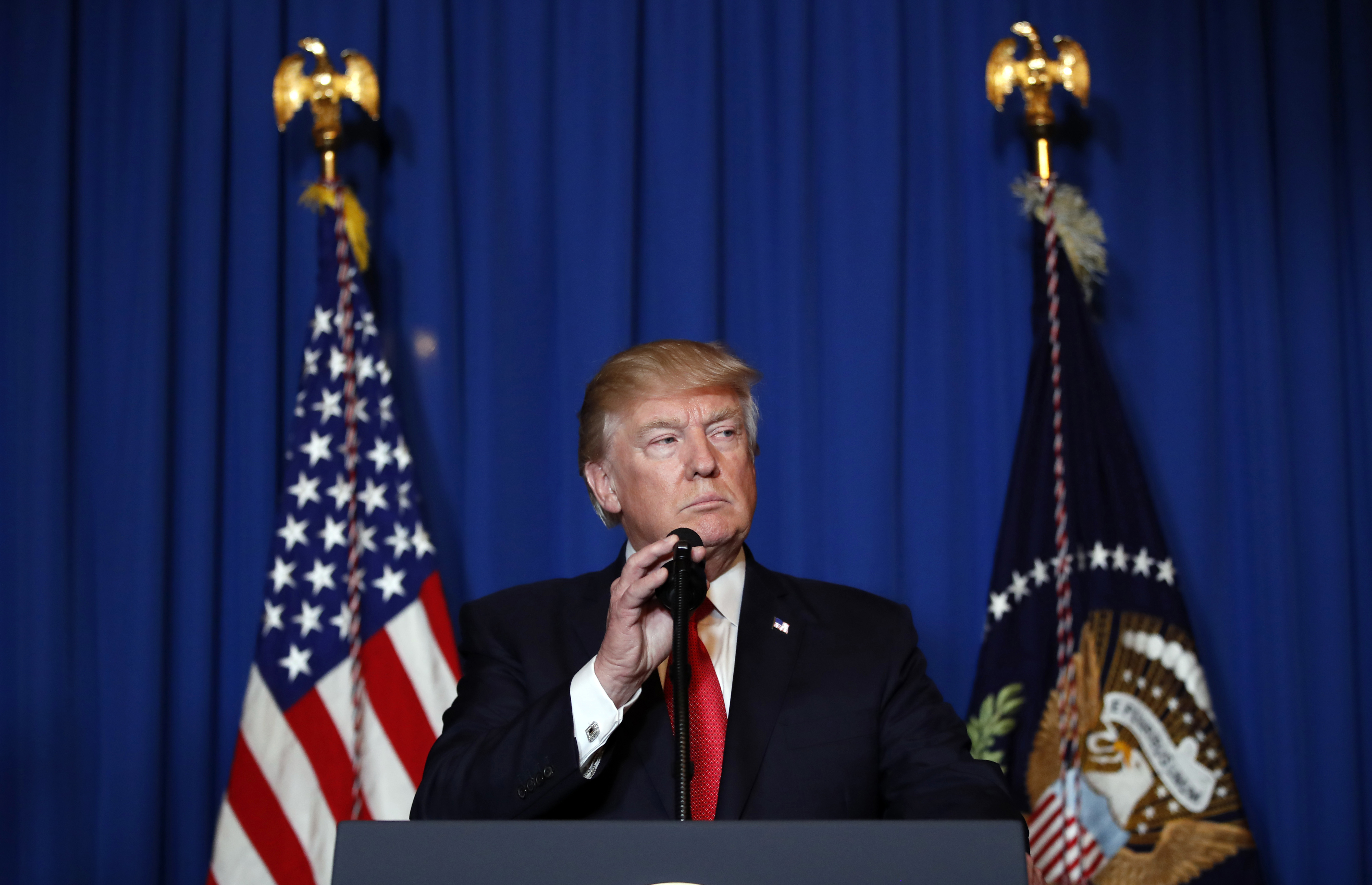No good will come of Trump's Syria strike
Do not listen to the puerile bleating of media sheep. Trump’s Syria strike is a horrifying disaster.


A free daily email with the biggest news stories of the day – and the best features from TheWeek.com
You are now subscribed
Your newsletter sign-up was successful
On Thursday night, the Trump administration abruptly announced that it had launched more than 50 cruise missiles at a Syrian airfield, in retaliation for the apparent use of chemical weapons against Syrian civilians by Bashar al-Assad.
This is a wildly dangerous and probably illegal action from President Trump, one which will almost certainly achieve nothing positive of substance, and risks entanglement and a shooting war with Russia.
As always with Trump, it's hard to discern what the administration is thinking, or indeed if it is thinking at all. According to the pool report, after Tuesday's chemical weapons strike, Trump developed the position that "something should happen." But up until the chemical attack, he had evinced little interest in atrocities in Syria; it seems for all the world that he saw some disturbing pictures on TV and completely reversed his position.
The Week
Escape your echo chamber. Get the facts behind the news, plus analysis from multiple perspectives.

Sign up for The Week's Free Newsletters
From our morning news briefing to a weekly Good News Newsletter, get the best of The Week delivered directly to your inbox.
From our morning news briefing to a weekly Good News Newsletter, get the best of The Week delivered directly to your inbox.
Desire for laudatory media coverage may also have been a factor. He's sure to have noticed how the goober centrist media tripped over itself to praise him when he applauded the service of William Owens, killed in a raid he ordered, during his speech to Congress in late February. It may seem strange to receive plaudits for hiding behind the corpse of the Navy SEAL who got killed in a stupid, botched raid (that also killed dozens of civilians), but as Alex Pareene argues, "The only thing the elite Washington press corps likes more than a bipartisan commission on debt reduction is a stack of flag-draped coffins."
Trump understands this dynamic very well. Let's rewind the tape to 2012.
So far, the strategy he once mocked is working for Trump. In the immediate wake of his Syria strike, the president was lavished with media praise. MSNBC's Brian Williams quoted Leonard Cohen while discussing the missile strikes; noted researcher Fareed Zakaria said Trump "became president of the United States tonight." Trump also got a round of applause from neoconservatives and liberal imperalists (aka "The Blob") who have been chomping at the bit to take out Assad for years — people like Max Boot, Anne-Marie Slaughter, and Nicholas Kristof. (Hillary Clinton also called for these exact strikes mere hours before they actually happened.)
But make no mistake, the chances of this turning out well are virtually nil. First, there is still the basic problem of strategic incoherence that has plagued America's Syria policy since the civil war began six years ago — we were already fighting both al-Nusra and ISIS (a U.S. airstrike last month in Syria killed at least 46 people), and now Assad as well. There is simply no force that is both pro-American enough to be acceptable to The Blob and strong enough to defeat all the other factions. That leaves an occupation as the only option that might theoretically be able to impose peace — though of course a bloody insurgency would be guaranteed.
A free daily email with the biggest news stories of the day – and the best features from TheWeek.com
Then there is the danger of escalation. What happens if Assad decides to call Trump's bluff? What happens if our childish, ignorant, insecure, easily provoked president gets his ego caught up in this and decides Assad has to go? Secretary of State Rex Tillerson said before the strikes there should be "no role" for Assad in governing Syria. What incentive does Assad have now to minimize his use of force? It is extremely easy to imagine this ending in American occupation of Syria — and another horrific Iraq-style quagmire.
Former President Obama at least had the sense and willpower to avoid occupation after The Blob talked him into intervention in Libya. And even that turned into a bloody fiasco; I have zero confidence Trump will be similarly sensible. (Also, it should be emphasized that making war on a sovereign state with no U.N. resolution nor congressional authorization is even more illegal than usual for these things, and that's saying a lot.)
Finally, conflict with Russia — which, we should recall, has thousands of nuclear weapons — is an even greater danger. Though supposedly the Russians were notified about the strike in advance, they are still infuriated. They have reportedly promised to help Assad strengthen his air defenses, and are pulling out of an air agreement that traded flight information between Russian and American forces so as to avoid collisions. What happens if a Russian plane shoots down an American one? The possibilities almost could not be worse.
If this country cared a whit about the lives of the Syrian people we'd take in some refugees and fully fund the U.N.'s humanitarian aid program. But under no circumstances should we be launching lethal military strikes in Syria. At the absolute best, all this strike will accomplish is juicing the stock price of Raytheon and other war profiteers by a bit. But the worst case scenario — and this is not an exaggeration — is that President Trump just foolishly and for no good reason escalated a U.S.-Russia conflict that could end in nuclear war.
Ryan Cooper is a national correspondent at TheWeek.com. His work has appeared in the Washington Monthly, The New Republic, and the Washington Post.
